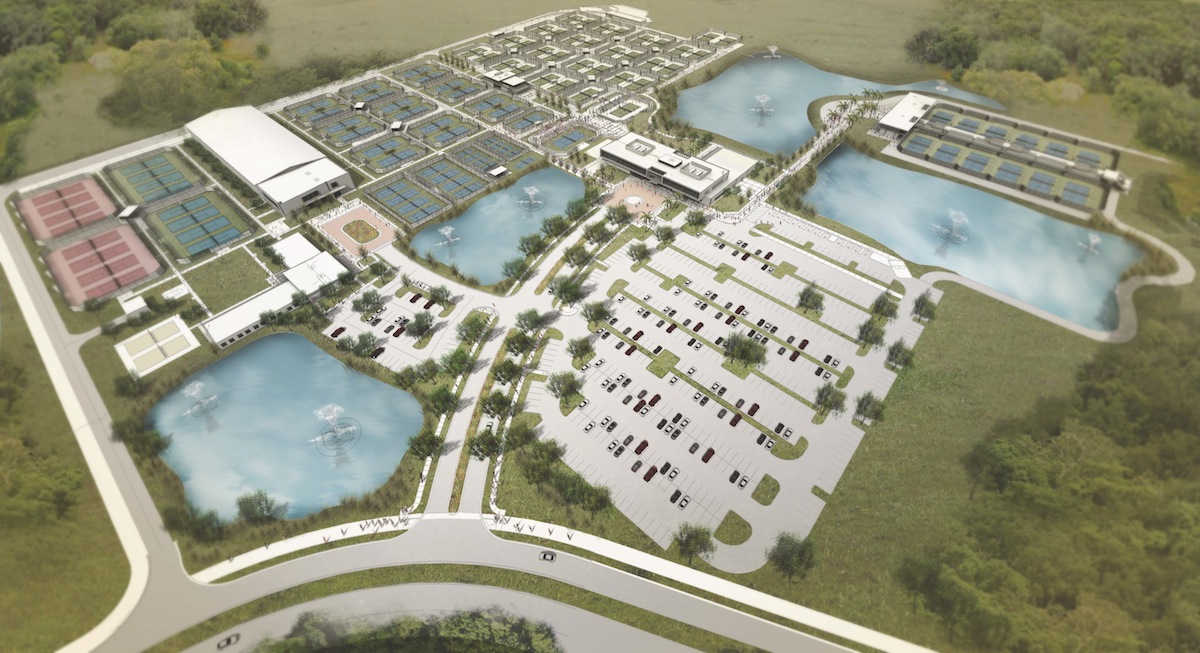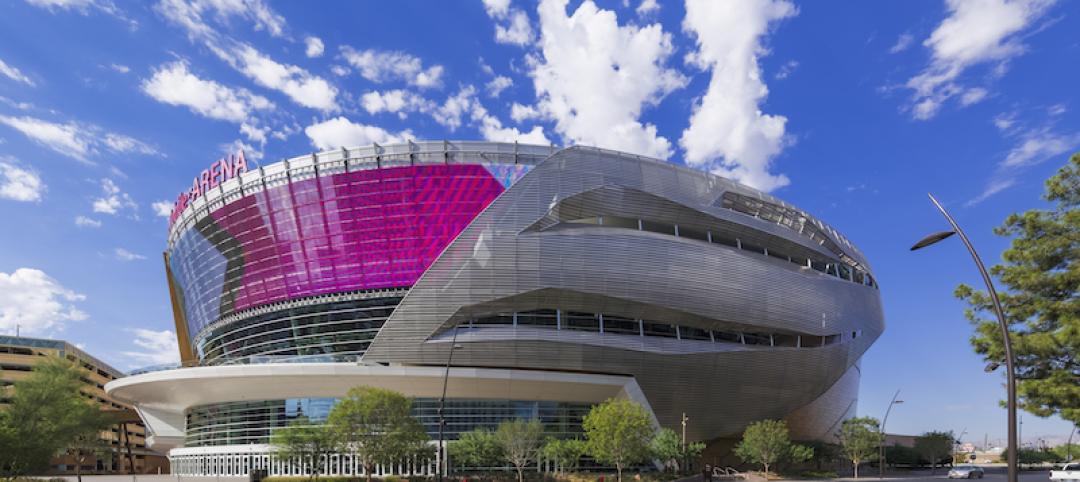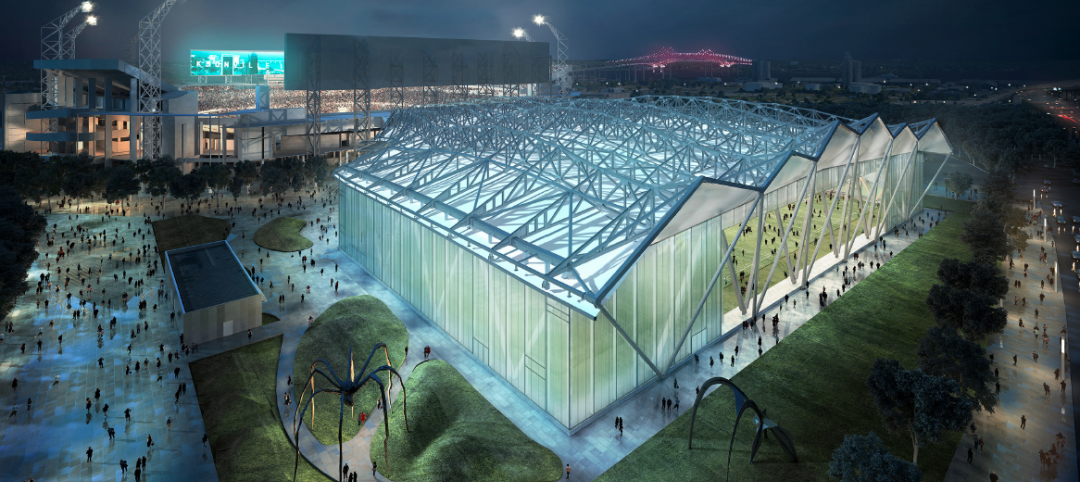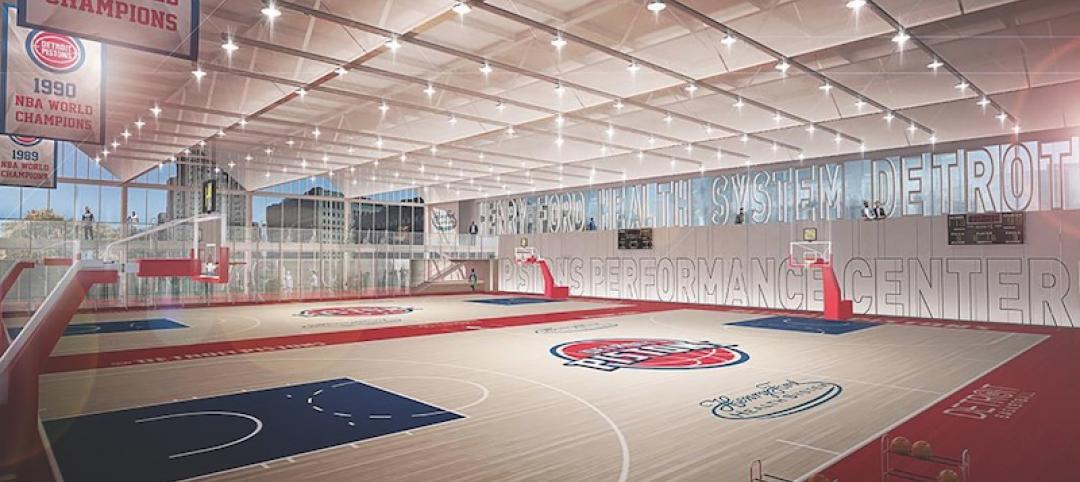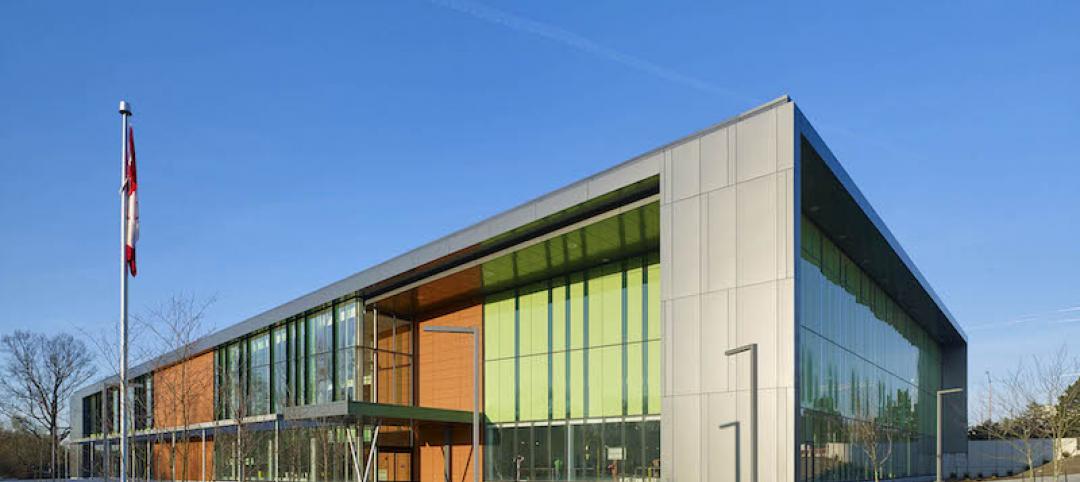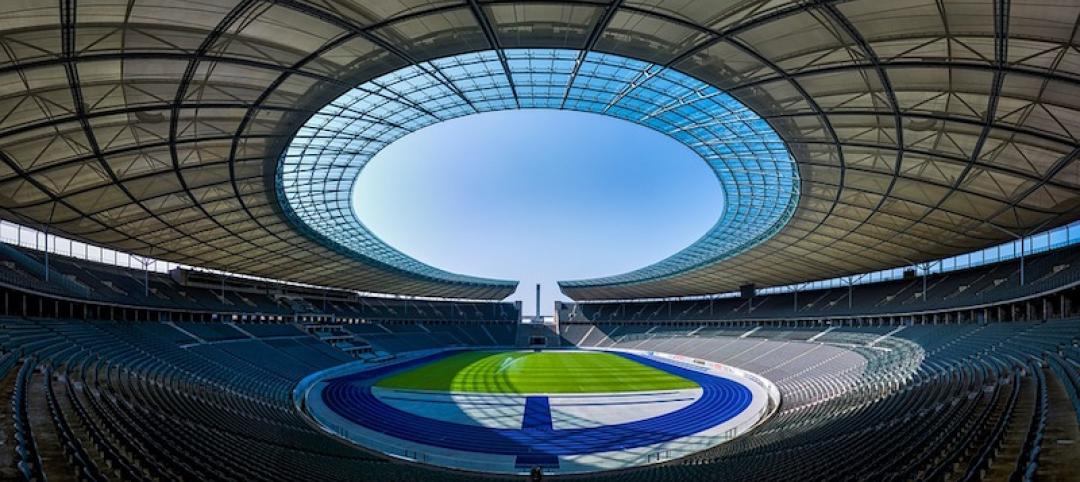On April 8, the United States Tennis Association broke ground on its $60 million USTA National Campus in Lake Nona, near Orlando, one of the country’s fastest-growing communities. With 106 courts and 270,000 sf, USTA’s New Home of American Tennis, as it is being called, will be the largest tennis complex in the U.S.
When completed in late 2016, this 63-acre facility—USTA’s first year-round outdoor construction project—will include a Tournament and League Area with 32 Har-Tru clay courts, and 20 Plexicushion hard courts; a Collegiate Tennis Area with 12 Plexicushion hard courts and one future tournament show court; and a Team Tennis USA Area with 12 hard courts that will be used by the 17 USTA Sections, along with local coaches and their players throughout the country to work collaboratively with USTA Player Development.
A High Performance and Player Development Area—with eight Duro-turf hard courts and eight red clay courts—will be able to house 32 boys and girls, and include strength and conditioning components. The complex will also feature indoor and family-area courts, a pro shop, fitness center, locker rooms, lounges, a café-restaurant, and USTA offices.
The USTA National Campus will be a cornerstone for the community’s Sports Innovation & Performance District, an emerging athletic district with a focus on research, design, innovation and technology.
An on-site stadium will be able to accommodate two matches simultaneously and seat 1,200 spectators.
The Building Team on this project consists of Tavistock Development (developer), HKS Architects (architect), BBM (structural engineer), Exp (MEP engineer), EDSA (landscape architect), and DPR Construction (GC). California Products, Har-Tru, and Connor SportCourt are supplying the court surfaces.
“By housing our two divisions devoted to growing the game at all levels, and training the next generation of players and coaches, we can have a greater impact on the sport than we ever had before,” says Katrina Adams, USTA’s chairman and president. (This complex would replace the association’s smaller training facility in Boca Raton, Fla.) Among the dignitaries at the groundbreaking were City of Orlando Mayor Buddy Dyer, and Orlando County Mayor Teresa Jacobs.
The 11-square-mile Lake Nona was a golf community surrounded by farmland and pastures when Tavistock Group, the developer’s parent, acquired it in 1996. The community is part of Orlando, and Tavistock has been working with that city’s economic development team to transform Lake Nona into what local officials are touting as city of tomorrow.
The USTA National Campus will be a cornerstone for the community’s Sports Innovation & Performance District, an emerging athletic district with a focus on research, design, innovation and technology. “We are launching what we think is the perfect partner to our Medical City,” said Rasesh Thakkar, senior managing director of Tavistock Group.
Over the past decade, Lake Nona has seen more than $2.8 billion and 2.4 million sf of clinical, institutional, laboratory space, and infrastructure completed or in active construction. The 650-acre Lake Nona Medical City health and science park—whose institutions include the University of Central Florida Health Sciences Campus and Sanford-Burnham Medical Research Institute—this year is adding the Orlando Veterans Affairs Medical Center and GuideWell Innovation Center.
Lake Nona’s 7,000 entitled acres offer nine residential communities that currently house about residents. Rob Adams, a vice president with Tavistock Development, tells BD+C that the community is entitled to build between 9,000 and 11,000 dwelling units, and will eventually house between 25,000 and 30,000 people.
The community is already served by three public schools, and three colleges. More than 5 million sf of commercial and retail spaces are in place. Lake Nona is where Johnson & Johnson has been conducting its multimillion-dollar, multiyear study on health and wellness. And the community is planning a 334-acre city park that will be Orlando’s largest.
Adams says Lake Nona’s build out is expected to take between 10 and 15 years. And he anticipates that the tennis complex will be a magnet for other business, such as apparel and fitness retailers, to come to this community.
Related Stories
Giants 400 | Oct 20, 2017
Top 40 sports architecture firms
Populous, HOK, and HKS top BD+C’s ranking of the nation’s largest sports sector architecture and AE firms, as reported in the 2017 Giants 300 Report.
Sports and Recreational Facilities | Sep 27, 2017
A soccer team’s fan base could play an integral role in its new stadium’s design and operations
Sacramento Republic FC and HNTB are conducting a contest where the public can submit concept ideas.
Sports and Recreational Facilities | Sep 11, 2017
Mid-size, multi-use arenas setting a trend for the future
While large 20,000-seat sports venues aren’t going away, mid-size venues provide advantages the big arenas do not in a time of budget constraints and the need for flexibility.
AEC Tech | Aug 25, 2017
Software cornucopia: Jacksonville Jaguars’ new practice facility showcases the power of computational design
The project team employed Revit, Rhino, Grasshopper, Kangaroo, and a host of other software applications to design and build this uber-complex sports and entertainment facility.
Sports and Recreational Facilities | Aug 18, 2017
Video: Designing the ideal rugby stadium
HOK invited four world-class rugby players into its London studio to discuss what they would like to see in the rugby stadiums of the future.
Sports and Recreational Facilities | Aug 16, 2017
Detroit Pistons Performance Center hopes to invigorate the community, create an NBA championship team
The facility will be incorporated into the community with public spaces.
Sports and Recreational Facilities | Jul 17, 2017
A new Rec Centre in Toronto links three neighborhoods
Community engagement impacts its design and programming.
Codes and Standards | Jun 21, 2017
Senate bill would prohibit tax money for sports stadium projects
Bipartisan legislation would prevent use of municipal bonds by pro teams.
Building Team Awards | Jun 8, 2017
Team win: Clemson University Allen N. Reeves Football Operations Complex
Silver Award: Clemson gets a new football operations palace, thanks to its building partners’ ability to improvise.
Sports and Recreational Facilities | May 19, 2017
Construction of $2.6 billion L.A. football stadium delayed by heavy rains
The Rams and Chargers won’t be able to move in until the 2020 season.


